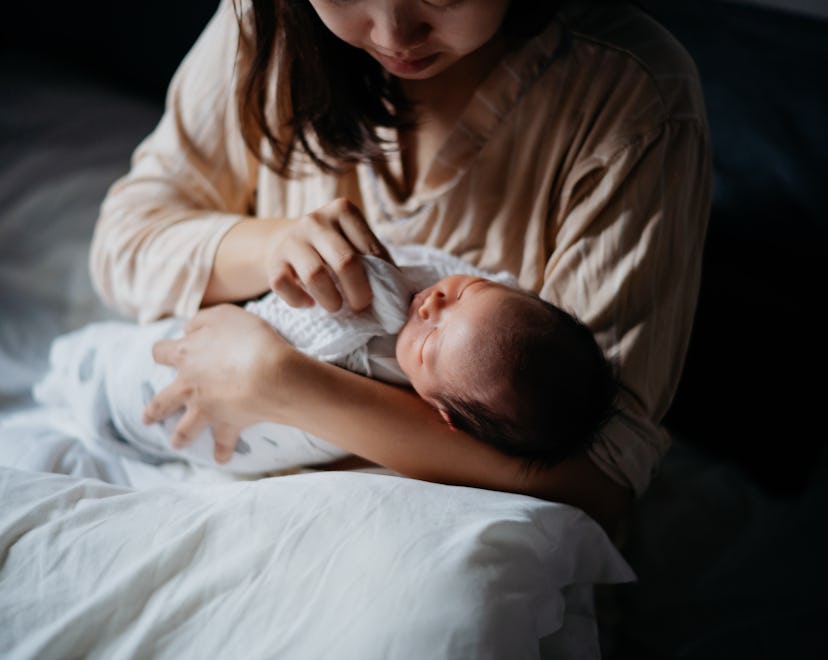Moms Are People Too

New Survey Confirms That Postpartum Moms Are Seriously Lacking Support
From their doctors, their employers, and their government.
If you’ve ever had a baby, you remember all the ways you felt supported, how the freezer meals and friends who cleaned your house really made a difference. And you definitely remember the challenges that felt out of your control, from healing your body to figuring out complex parental leave policies (if you even had the option to take paid leave, which many American parents don’t). A new report from BabyCenter and economist Emily Oster examined all the ways new moms are overlooked during the postpartum period. The report’s conclusions aren’t shocking — of course more paid leave results in less stress for parents — but it’s staggering to see just how intensely new mothers are impacted by a lack of social and systemic support.
The 2023 Postpartum Support Survey, conducted by BabyCenter and Emily Oster (CEO of ParentData), collected information from 1,742 U.S. women, ages 18 to 49, with a child between 0 and 6 months old. The findings revealed that longer parental leave directly correlates to better mental health for new parents. Respondents who took maternity leave for 13 weeks or more were 29% less likely to experience any anxiety symptoms. On the other hand, mothers whose partners took no parental leave were 89% more likely to experience severe anxiety symptoms.
There are discrepancies between the support for white mothers and mothers of color too, according to the survey, which says moms of color were disproportionately more likely to say they lacked postpartum support. In fact, only 22% of Asian American/Pacific Islander (AAPI) mothers and 32% of Black mothers reported feeling like they received all the support they needed postpartum compared to 44% of white mothers. In a nation with an ever-increasing maternal mortality rate that disproportionately affects Black women, offering better bolsters for mothers of color can truly be a matter of life and death.
“It’s easy to find stories from women about their postpartum struggles, and these stories give us an important window into the postpartum experience,” says Oster. “But by collecting data on the frequency of these experiences, we can get a more complete sense of how common they are and what can change the experience.”
BabyCenter’s survey also got hard data on a phenomenon new mothers have struggled against for, like, ever: most postpartum support and education is focused on caring for baby, not Mom. The researchers concluded that:
- When leaving the hospital, 65% of moms felt ready to care for their newborns, while only 47% felt confident caring for themselves after giving birth. That difference was (unsurprisingly) more pronounced for first-time moms. Only 38% of them felt truly prepared to care for their own physical and mental health after delivering. You might think, “Well, they should ask their doctors and midwives for more help.” Well...
- Medically speaking, less than half of new mothers feel they have adequate support postpartum (41%, to be precise). While newborns average three visits with the pediatrician in their first month of life, new mothers have one check-up with their OB-GYN six weeks postpartum. It’s tough to ask all your questions about healing from birth, breastfeeding, and the mental health impact of new motherhood in one appointment, and so long after you may have begun struggling in one or all of those areas.
So, while any mom could tell you she didn’t quite have all the support she needed after birth, these new facts and figures show just how many mothers lack the tools they need to be healthy postpartum. The data also serves as a reminder that while we wait for large-scale change and support for new moms, friends and family can show them extra love right away.